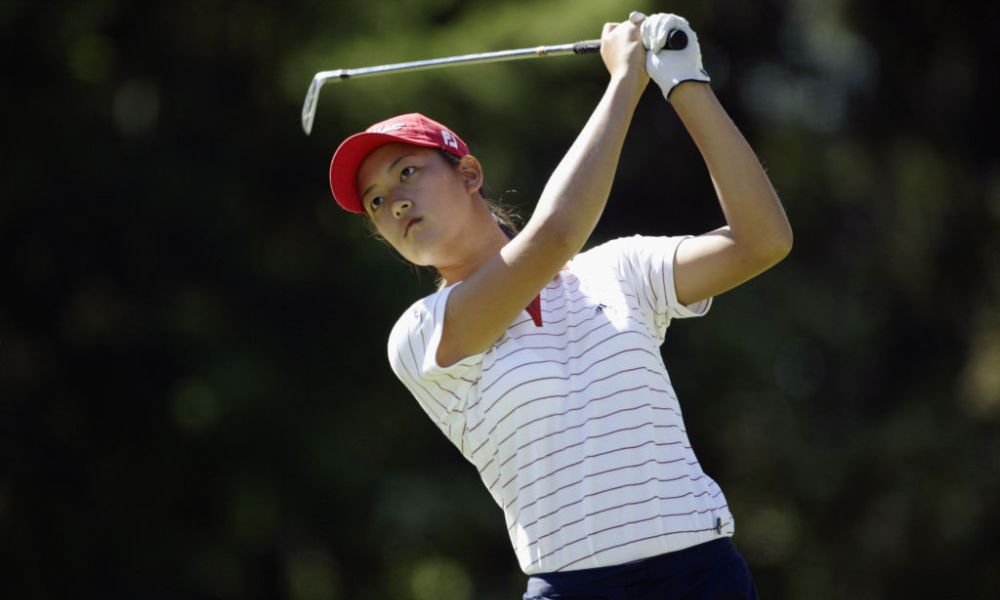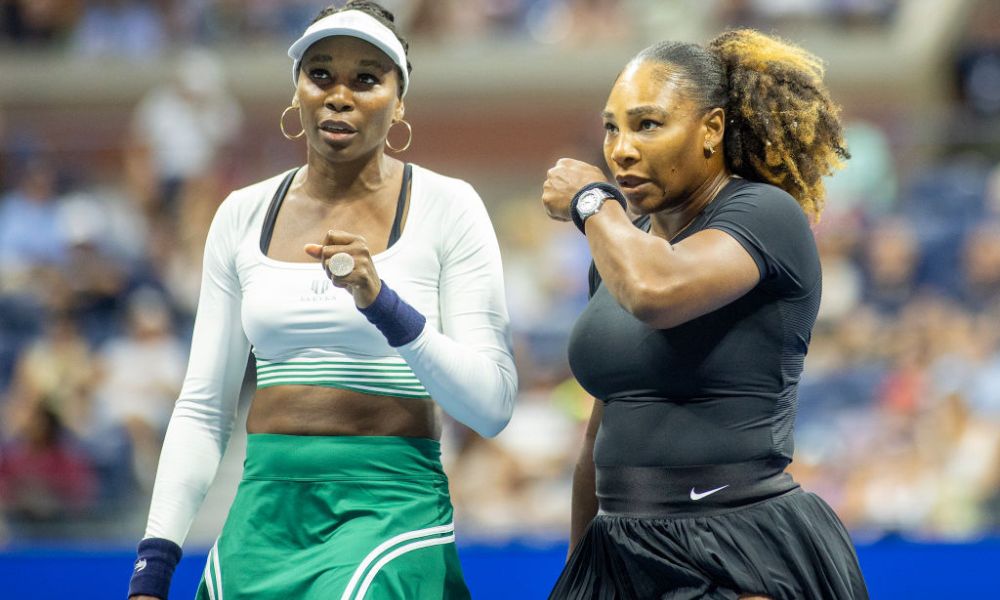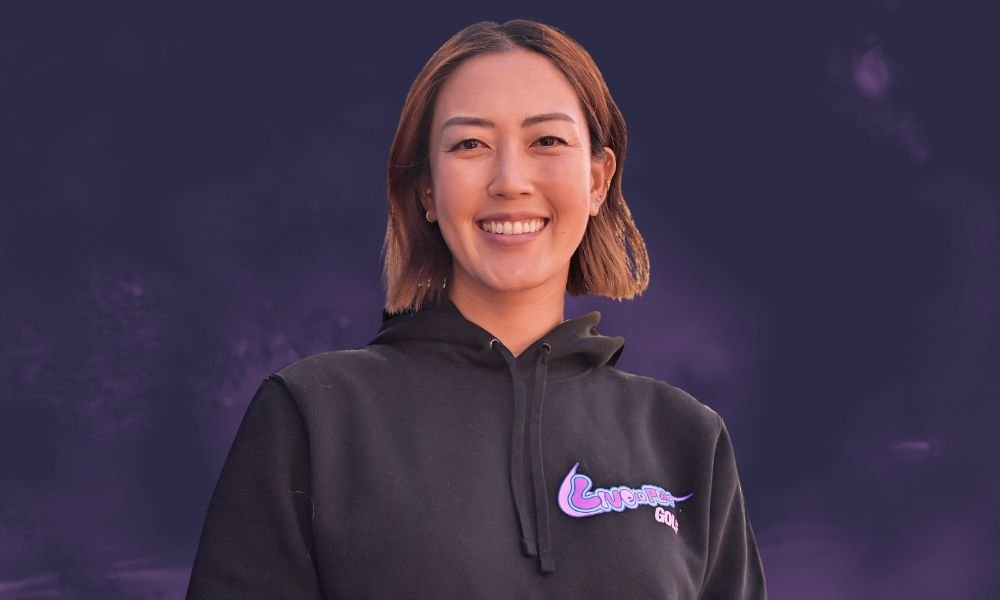As Michelle Wie West attests, there are few downsides to being an equity investor in a tequila brand.
“Investing in a tequila company is a lot of fun,” she tells SportsPro in September. “Let me tell you, the tasting process is probably the most fun out of any other companies that I’ve been part of.”
Wie West’s investment in Casa Azul came about initially due to her friendship with the brand’s founder Lance Collins, who was also behind the creation of sports drink BodyArmor. His track record gave the now-retired golfer the confidence to put her faith in the company even when it was first being developed.
“I invested without even tasting the tequila,” she recalls. “I was like, ‘I believe in you Lance, like I will invest in you’. It’s been a really fun process so far. The product has been amazing and has been really well received as well.
“It’s great to be part of a company that just knows what the mission is. They’re all about organic tequila, farm to bottle, really single sourced while being sustainable. It has all the things that I am passionate about, but also not to forget, tequila is supposed to be fun, and it tastes great too.”
Long before officially retiring from professional golf in July, ending an 18-year career which saw her break onto the scene as a teenager in 2003, when she became the youngest player ever to make the cut at the US Women’s Open at the age of 13, Wie West had started to turn her attention to investing.

As well as owning equity in Casa Azul, the American has also invested in fitness equipment specialist Tonal, artificial intelligence (AI) technology firm Sportsbox AI and, most recently, the Los Angeles-based TGL franchise ahead of the golf league’s upcoming inaugural season.
Wie West credits both advisory firm Patricof and Co and data platform Pitchbook for helping to shape her investment portfolio. The former, founded by Mark Patricof, advises athletes on how to spend their money and Wie West has leaned on the company’s expertise to inform her decision-making.
Meanwhile, she describes Pitchbook as “the caddy” to her investments. Specialising in data insights, the company has provided her with information on companies to complement her own background research before deciding whether to make an investment.
“My portfolio has gotten a lot more diverse,” she says. “Obviously, I feel very strongly and passionately about each company and I believe in their mission.
“My investments are led with purpose, and there also are investments that I just believe are good investments. I think it’s important to keep a diverse portfolio, but also to do things that you’re passionate about and that you believe in.”
The Williams sisters, Alex Morgan and lessons from Stanford
Wie West is part of a new wave of athlete investors, several of whom are included in this year’s list of the world’s 50 Most Marketable Athletes. When asked which sports stars have inspired her own move into investment, Wie West mentions the Williams sisters and US women’s soccer icon Alex Morgan.
“It’s really cool seeing Serena Williams become one of the first female athletes to start their own fund and really invest in things that she believes in,” she says.
“Venus is a big inspiration of mine as well. You know her as a tennis player, but her passion also lies in fashion, interior design and healthy eating. She’s really carved out a business for her in each of these endeavours and refuses to be pigeonholed as a tennis player.
“She wants to branch out, that’s always something that I’ve admired and wanted to do. So they and Alex Morgan are huge inspirations of mine. A lot of athletes these days are just being really brave, making bold choices, and I take inspiration from all of them.”
For Wie West, the desire to take ownership of how she spends her time has been a key driver behind her investment career. She also credits her experience as a student at Stanford University, where she majored in communications, as having an influence on where she is today.
Having attended classes alongside the likes of future Snap co-founder and chief executive Evan Spiegel, she looks back on this period as a time of inspiration, guided by the innovations that were developing around her.
“I’ve been very fortunate to have many sponsors, and many great sponsors that I’ve had very long relationships with,” she explains. “And it’s been fun in the second stage to really focus on investing in companies that I believe in, that I want to be a part in, that I want to give my time to.
“Each company that you’re partnered with is an investment of its own, because it includes your time. So there has to be the right method to look at that. But also, when it comes to investing, it’s fun. I’ve always wanted to be an entrepreneur and have my own thing.”

Bringing a competitive mindset to investing
Having secured multiple sponsors during her playing career, including the likes of Nike and Sony, Wie West believes that her approach to investing is similar to how she evaluated potential endorsement deals – only with the added element of now needing to check whether the company she is backing is healthy financially and has the potential for success going forward.
As for the similarities between her mindset as an athlete and as an investor, Wie West believes her fearlessness, willingness to take risks and focus on winning are skills that will also serve her well in the business world.
“The one thing that I take away from being an athlete into the investment world is the discipline, to stay your course, but also to take risks and to not be afraid to fail,” says Wie West, who won five tournaments on the LPGA Tour, including the US Women’s Open in 2014.
“Obviously, winning is everything, all you want to do is win,” she continues. “But you also have to completely give away the fear of losing to win. Because once you’re afraid of losing, you’ll never win ever again.”
As well as analysing long-term potential and financials, Wie West also places a strong emphasis on a company’s approach to diversity and sustainability when assessing investment opportunities. While each opportunity is examined on a “case-by-case” basis, she examines how businesses address both issues, as well as advocating for female-led companies when there is an opportunity to do so.
“There’s no umbrella thing that I do,” Wie West continues. “But there are companies that I reached out to. I reached out to Tonal just because I think the product is genius. I think it really can help democratise private training with gym equipment inside your house. We were also then going through a time of Covid and people were needing that.
“As for [personal care brand] Blueland, I reached out to them because I love their sustainability mission. I love that their founder is Asian, and she’s a woman, and she talks the talk and walks the walk. She’s at our capitol every chance she can to change legislation against plastic usage.
“It’s a company where I really believe that from top to bottom they believe in their mission and they won’t cut costs to compromise, but they also democratise non-plastic usage in the household cleaning space in an affordable way to many households.”
Once invested in a business, Wie West says that her involvement is very much dependent on the company’s needs, while also taking into consideration her own ambitions and the amount of time she has.
With Tonal, for example, the 34-year-old has developed a golf-focused workout series that the platform’s users can follow along with. Other companies, such as Supergoop! and Casa Azul, have benefited from branding opportunities at the Mizuho Americas Open, the LPGA event Wie West hosted earlier this year.
“It’s always a case by case,” she explains. “Sometimes it’s the right fit to be a silent investor, just to cheer from the stands. Other companies, they want me to be on the advisory board or to help them market [the product], help them with the actual product design.”
Making bets in unfamiliar places
Another company Wie West has invested in is Sportsbox AI, which specialises in developing 3D AI coaching for budding golfers. The firm’s technology can be accessed using a mobile phone, which Wie West hopes will allow players at all levels to benefit from the innovative insights provided without needing to commit so much money.
As well as taking a hands-on approach with the technology aspects and helping the company figure out how to make its offering user-friendly, she also supports the marketing of the product using her own platform.
“I get very passionate about Sportsbox AI because it democratises 3D data,” she says. “Because now you can use your phone to capture the 3D data and anyone can use it – any coach that has a phone, that can download it on the app, and they can teach it to their students.
“You no longer have to pay many thousands of dollars to own 3D equipment to have this data. So I really like it, because it democratises the information to anyone that has access to it.”
While some athletes may be intimidated by the prospect of investing in technologies that might be unfamiliar to them, Wie West is keen to explore new fields. Her investment in Sportsbox AI is a show of faith in the company’s leadership team, whose expertise she has placed her confidence in.
“3D data in general is super complicated, it’s above my pay grade, as one might say,” she continues. “That’s why I invested in the team. It’s the top 3D data people that are heading the company. They know it a lot better than I do, and I have faith in that they know it a lot better than I do.
“I believe in the data and also the fact that they’re making 3D data so much easier to use. I’m all for using technology to dumb down really difficult information to process.
“It is scary, it’s a field that I don’t know at all, but you have to expand your horizon, or else you’re just gonna get stuck.”
A new era of female athlete investors
While there are a growing number of female athletes going down the investment route, Wie West observes that there still needs to be a shift in mindset so that sportswomen are looking for further opportunities beyond just endorsing a company’s products.
“I think before, and something I still see happening now, is that when a sponsor approaches an athlete, and an agent brings it to them, a lot of times they’re like ‘oh, this is as good as it’s gonna get, so I should just accept it, right? Female sports isn’t that big, so you should be lucky that you should be getting sponsors.’
“It was that kind of mindset that was going on. So you kind of got into this acceptance trend where you think you should just accept it because you don’t know when the next [offer] is going to come.
“But I think that female athletes thinking like investors is a completely different mindset, where you have the deal flow and a company approaches you. But if it isn’t right for you, if you don’t want to put your money in it, then I don’t think that’s the right company to align with.
“I think it helps me personally, even when I’m approached by a sponsor, would I invest in this company? Is this something that I want to take ownership in? Because that’s how I treat sponsors and the companies I invest in. I’m a part of their team, I’m a part of their family.
“I think you have to start taking ownership in your career, and where your money is at, and your life.”
With more athletes now venturing into the investment world, Wie West advises them to avoid big deals early on, while also being comfortable enough to partner with a company they have complete faith in.
“I would say start small, just jump in,” she says. “That’s the only way that you really learn. Obviously, you can learn from a textbook and from reading news articles, I highly recommend doing that.
“But just jumping in and with a number that you’re comfortable with. If you find a company that you like, just do it and learn from that.
“It could be a complete mistake, it could be a complete bomb, but you’re gonna learn from it.”


